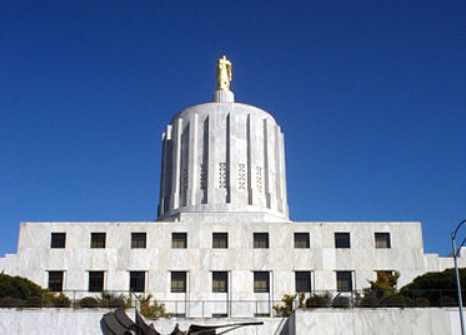Business bills of the 2017 Session

.
As with several before it, Oregon’s 2017 Legislative Session was no friend to business growth or success. Although it could have been much worse, the Legislature expanded its control over Oregon business in a variety of ways through new laws. Here are a few business owners ought to be aware of:
How employees are scheduled – Beginning in July of 2018, businesses in the retail, food service and hospitality industries that use more than 500 hourly employees worldwide will be required to determine and post work schedules at least 7 days in advance. No enforcement action will begin for a year from implementation, to allow businesses to shake out any bugs and for the expected “unintended consequences” of the law (SB 828) to be identified. Beginning in July of 2020, schedules must be posted 14 days in advance. Employees will have the freedom to tell their employer they are willing to work on “short notice.”
Pay Equity – HB 2005 prohibits employers from asking job applicants about their salary history and also prohibits pay differentials arising out of a person’s designation in a “protected class.” The new rules apply to salaries, benefits, bonuses and other ways employees might be compensated. The new law prohibits the reduction of any compensation to existing employees in order to be in compliance.
Overtime Pay and Restrictions – HB 3458 limits manufacturing employees to no more than 55 hours in any one week but allows the employee to request an additional 5 hours. Manufacturers who deal with perishable products such as fruits and vegetables may ask for a short-term waiver to allow up to 84 hours of work in a week for processing. The bill also clarifies that the greater of daily or weekly overtime be paid, but not both.
Health Care Tax – To fund Oregon’s health insurance program for low-income residents, and to fill budget holes created by waste in the Oregon Health Authority, HB 2391 imposes taxes on hospitals, health care professionals and health insurance premiums. These taxes will drive up the cost of health insurance and health care if they are not repealed by voters in January.
Transportation Package – Although it represents a massive tax and fee increase, HB 2017 also will provide some funding for improved transportation, and provides a significant update to State transportation policy, which could be valuable for Oregon business when projects are realized in years to come. Movement of goods, particularly through high traffic areas, has become increasingly difficult over the years. A building program that emphasizes the addition of lanes and lane-miles to areas suffering congestion could be valuable. Among other revenue raisers, the bill imposes a new tax on the sale of new vehicles, and a first-in-the-nation tax on bicycles. Business owners are encouraged to participate in any local opportunities for input on projects to be built.
Posted: September 28th, 2017 under Uncategorized.

 Subscribe To RSS
Subscribe To RSS